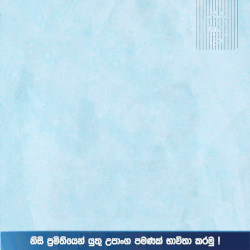It has been six years since Sri Lanka endured one of the deadliest terror attacks in its modern history. On April 21, 2019 Easter Sunday suicide bombers targeted churches and hotels in Colombo, Negombo, and Batticaloa, killing over 260 people and injuring hundreds more. The scale of the violence was unprecedented. The shock was national. The grief, immeasurable.
And yet, six years on, no formal charges have been filed in Sri Lanka against those believed to be responsible.
What makes this even more disturbing is that significant evidence already exists. A criminal complaint filed by the United States Department of Justice in 2020 names three Sri Lankan nationals Mohamed Naufar, Mohamed Riskan, and Ahamed Milhan as key operatives involved in planning, training, and facilitating the Easter Sunday bombings. The 72 page affidavit by an FBI special agent outlines how this ISIS-affiliated group formed in Sri Lanka, conducted weapons and explosives training, and swore allegiance to the Islamic State’s leadership.
Despite this detailed account based on physical evidence, witness testimonies, forensic findings, and direct admissions Sri Lankan authorities have yet to prosecute any of the key suspects named. They remain in custody, uncharged, untouched by the local judicial system.
This inexplicable delay has given rise to serious concerns.
What explains Sri Lanka’s silence? Why has there been no transparent legal process? The issue is not a lack of information. It is not the absence of suspects. It is a failure of will and possibly, a suppression of accountability.
Instead of decisive legal action, there have been commissions, inquiries, and classified reports. Various government officials have made conflicting statements. At times, fingers have been pointed at internal political factions. At other times, vague references are made to “foreign influences” or “extremist networks.” But what has consistently been avoided is the initiation of a transparent criminal trial against the individuals identified in both local and international investigations.
The United States, operating on behalf of its own citizens killed in the attacks, saw enough evidence to file formal charges. That a foreign government has done more to pursue justice than the country where the attacks occurred is not only embarrassing it is a damning reflection of state inertia.
At this point, Sri Lanka’s delay risks undermining public confidence in the rule of law. It has transformed a national tragedy into an unresolved controversy. It has led to growing skepticism about whether vested interests are obstructing justice, whether sensitive alliances are being protected, or whether the full truth would expose politically inconvenient realities.
The Easter Sunday attacks were not simply a moment of violence. They were a defining moment in Sri Lanka’s post-war history a test of how the country would respond to organized terror. Six years later, that test remains failed. The victims’ families are still waiting. The public is still questioning. And the international community is still watching.
Justice delayed is justice denied. But justice deliberately avoided is something far worse.
Written by Guest Writer










 Lanka Rahas Web
Lanka Rahas Web
No comments
Post a Comment